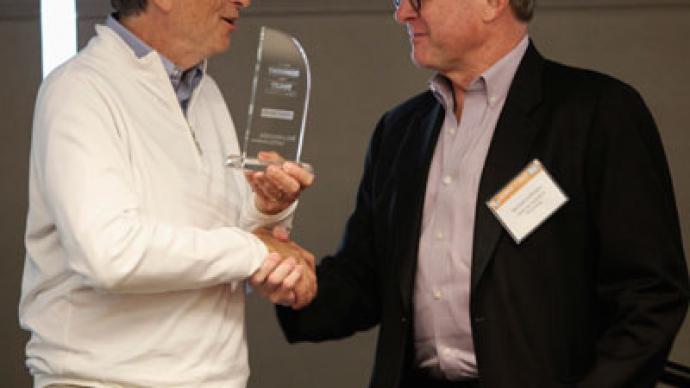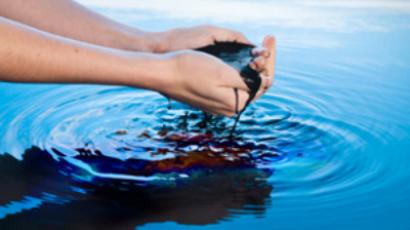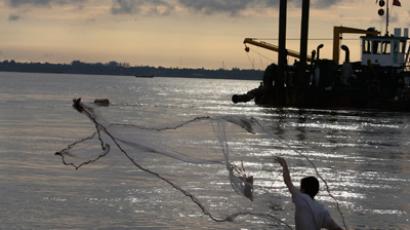Bill Gates spends millions for toilet of the future challenge

One of the world’s richest men has embarked on a project to clean up the world. The foundation headed by Bill Gates and his wife is backing new designs for a toilet to be used in developing countries.
The ideas could improve the lives of more than two and a half billion people around the world. The Gates Foundation set up the “Re-invent the Toilet Challenge” to create a new commode that would operate without running water, electricity or a septic system. At the same time it had to cost less than 5 cents a day to run, capture or recycle energy, and not pollute. Some of the best young scientists have been toiling away to find a solution, and the winners have been announced. Top prize of $100,000 was awarded to the California Institute of Technology for their breakthrough sun-powered disposal unit that recycles water and breaks down human waste into storable energy. It’s solar-powered to generate an electrochemical reaction that breaks down human waste into hydrogen gas, which then is collected in hydrogen fuel cells that are used as an alternative energy supply during night time use. The unit can be placed underground beneath an orthodox -looking stall. Water is circulated to flush.UK’s Loughborough University won the $60,000 second prize for a toilet that produces biological charcoal, minerals, and clean water. The University of Toronto in Canada won the third place prize of $40,000 for a toilet that sanitizes faeces and urine and recovers resources and clean water. Special recognition and $40,000 went to the Swiss Federal Institute of Aquatic Science and Technology for their outstanding design of a toilet user interface.According to the Foundation, around 1.5 million children die globally each year from diarrhoea, especially in the sub-Saharan Africa and East Asian countries. Food and water tainted with faecal matter lead to diseases that kill more than the annual deaths from AIDS and malaria combined. Flushing toilets are a luxury in those places of the planet where access to water, and sewers, electricity, and sewage treatment systems are almost impossible to come by. According to The Global Water Supply and Sanitation Assessment 2000 by the World Health Organization, 40% of the global population does not have access to "good" 'excreta disposal facilities'-they live mostly in Asia and Africa. The Bill & Melinda Gates Foundation set out the challenge to develop new, innovative toilets for use in the world's poorest regions. The awards recognize researchers from universities who are developing innovative ways to manage human waste, which will help improve the health and lives of people around the world.“No innovation has saved more lives in the last 200 years than the flush toilet and sewer system," said Frank Rijsberman, director of water, sanitation and hygiene for the Gates Foundation. "But we need new approaches to ensure the 40 percent of humanity without access to improved sanitation has a safe and affordable way to go" quotes the Fast Company business magazine. The foundation expects to field test its first prototypes within the next three years and is expected to invest more than $6 million dollars when the job is done."Many of these innovations will not only revolutionize sanitation in the developing world, but also help transform our dependence on traditional flush toilets in wealthy nations" said Bill Gates.Overall the foundation spends around $80 million on water, sanitation and hygiene issues annually.














